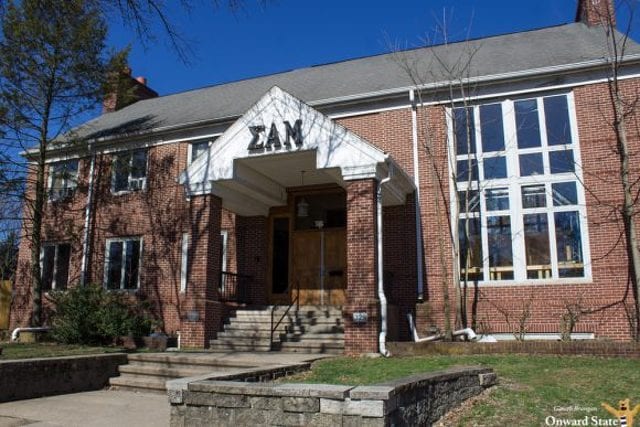
no description

no description
The national Sigma Alpha Mu fraternity, often known as Sammy, will close its Penn State chapter following an investigation into health and safety concerns, according to a release.
Penn State suspended the Mu Lambda chapter in April 2017, following multiple violations of university restrictions on alcohol use during Parents Weekend. The suspension prevented the organization from attending, organizing or participating in university-sanctioned events.
Because the national organization didn’t take action at the time, the chapter remained chartered and maintained its house in State College. As a result, the chapter has continued to operate normally, and members have occupied its East Prospect Avenue house in violation of a State College borough ordinance that requires University recognition of a fraternity for a chapter to operate a fraternity house in the borough. That ordinance has been challenged in court and the case is still pending.
Penn State recently alerted the national organization again when it learned of “continuing behavioral issues at the chapter house that jeopardized the welfare of the community.” The national organization then decided to take action.
Even with losses of recognition, former members can still continue to reside in the fraternity’s house, because it is privately owned and their leases remain in effect.
“Our foremost priority in these circumstances is the safety and well-being of our students,” said Damon Sims, vice president for Student Affairs at Penn State. “We continue to encourage and foster the positive aspects of the fraternity and sorority experience, while working to minimize the risks that membership or participation in these groups sometimes poses. But in cases such as this one, when a suspended chapter continues to operate without University recognition, it is nearly impossible for the University to have sufficient influence to discourage the risks present.”
Receive all the latest news and events right to your inbox.

80% of consumers turn to directories with reviews to find a local business.